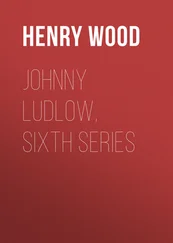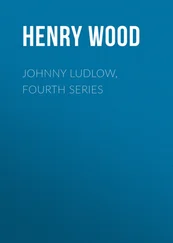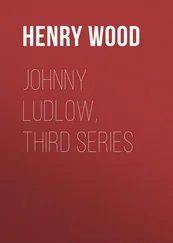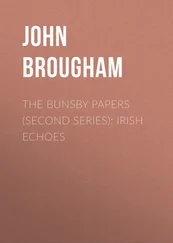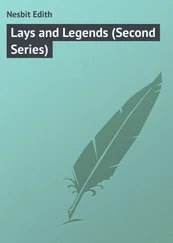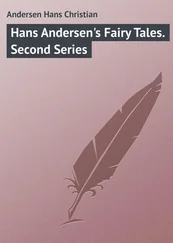Henry Wood - Johnny Ludlow, Second Series
Здесь есть возможность читать онлайн «Henry Wood - Johnny Ludlow, Second Series» — ознакомительный отрывок электронной книги совершенно бесплатно, а после прочтения отрывка купить полную версию. В некоторых случаях можно слушать аудио, скачать через торрент в формате fb2 и присутствует краткое содержание. Жанр: foreign_prose, literature_19, foreign_antique, на английском языке. Описание произведения, (предисловие) а так же отзывы посетителей доступны на портале библиотеки ЛибКат.
- Название:Johnny Ludlow, Second Series
- Автор:
- Жанр:
- Год:неизвестен
- ISBN:нет данных
- Рейтинг книги:3 / 5. Голосов: 1
-
Избранное:Добавить в избранное
- Отзывы:
-
Ваша оценка:
- 60
- 1
- 2
- 3
- 4
- 5
Johnny Ludlow, Second Series: краткое содержание, описание и аннотация
Предлагаем к чтению аннотацию, описание, краткое содержание или предисловие (зависит от того, что написал сам автор книги «Johnny Ludlow, Second Series»). Если вы не нашли необходимую информацию о книге — напишите в комментариях, мы постараемся отыскать её.
Johnny Ludlow, Second Series — читать онлайн ознакомительный отрывок
Ниже представлен текст книги, разбитый по страницам. Система сохранения места последней прочитанной страницы, позволяет с удобством читать онлайн бесплатно книгу «Johnny Ludlow, Second Series», без необходимости каждый раз заново искать на чём Вы остановились. Поставьте закладку, и сможете в любой момент перейти на страницу, на которой закончили чтение.
Интервал:
Закладка:
“One has been coming to soothe me, and another has been coming; I haven’t known how to bear it. They mean it in kindness—great kindness; but I would so much rather be alone. You go now, Johnny.”
So I shut her in. And whispered to Mrs. Coney that she was praying to be left.
I don’t know how the day went on, except that it was miserably uncomfortable. We had some cold beef in the everyday dining-room, and old Coney, after saying he’d have given a thousand pounds out of his pocket for it not to have happened, went and smoked a pipe with Cockermuth in the best kitchen. Dusk began to come on.
Why! who was that—driving up in Robert Ashton’s dog-cart? Robert! Robert himself? Yes, it was; and the Squire, and Tod, and Tom Coney with him. The dog-cart had gone to the station to wait for the Squire and the other two: they came, bringing Robert Ashton.
“Is it all right, Mr. Ashton?”
“Quite right, Johnny. You did not think it could be wrong, did you?”
“You are out on bail?”
“Out for good. There has been no real damage done. I wonder where Jane is?”
“I’ll take you to her. She has been wishing she was dead.”
No one in the house scented his presence. I opened the door of the large oak-room. Jane was kneeling on the hearthrug, her face buried in the cushion of the arm-chair. She started up at the noise, and stood like one turned to stone.
“ Robert? ”
I do believe she thought it was not real—his ghost, or something. He went up in silence, slightly smiling—he was always a quiet-mannered man—and holding out his hand.
“It is I, myself, Jane. You look as though you doubted it.”
With a great cry she fell forward. Robert caught her to his breast. I was going away when he hastily called to me. For the first time in her life she had fainted away. The thing had been too much for her.
“Get some water, Johnny. Don’t call any one. She’ll soon come to.”
There was water on the table; wine too. He gave Jane some of both. And then she listened to his story, leaning on his arm, and crying as softly and peacefully as a little child.
Those outside were listening to the wonderful tale. When I went out, they had gathered in the best kitchen, round the Squire, who had gone there in search of old Coney. The Squire’s glowing face was a sight to be seen. Mrs. Coney had sat down on the mahogany bench; her hands lifted. Coney stood with his pipe held at arm’s-length. As to Mrs. Todhetley, the tears were running down her cheeks in a stream.
It was quite true that Lucy Bird was very ill. Robert saw her in bed. As he was leaving, Bird began upon the old grievance—that he should have some of Lucy’s money advanced in a lump. He wanted it for his cards and dice, you see. Robert told him, No: as he had told him all along. An associate of Bird’s was there; a very bad man, named Dawler. They got Robert to take a friendly glass of wine—which purported to be sherry: and from that moment he lost all power, and partly consciousness. The wine was drugged. Their object, no doubt, had been to partly stupefy him, and so induce him to sign an undertaking to hand over the money to Bird. But they had made the potion a trifle too strong, not calculating the effect it would take on a young and habitually sober man. Robert fell into a deep sleep, from which it was impossible to arouse him all night: as to writing, his hands were as if dead. Late in the morning he awoke; and, bit by bit, realized where he was and what had passed. He was a little stupid even then, but sensible enough to remember that it was his wedding-day, and to foresee that he might have some trouble to get away from the house. On attempting to leave, Bird and Dawler placed themselves in the passage to prevent him. There was a hot contest. Robert Ashton, a stronger man than either of the others, but aware that all his strength was not then at his own command, seized a knotted stick, or club, that was lying in a corner, and lifted it to fight his way through. Dawler struck at it, to get it out of his hand, and struck it against Bird’s head with frightful force. The fellow dropped as one dead, and the door was burst open by the neighbours and policemen. The excitement, perhaps the exertion, acting on Robert Ashton’s only partly recovered state, turned him stupid again: the people took him to be drunk, and Dawler gave him in charge for murder.
That was the history. When the Squire had got into the police-court, Robert Ashton (who was nearly himself again through the remedies the doctor had given him in the police-station) was telling his tale. Dawler was contradicting him, and swearing hard and fast that it was a case of deliberate murder. The magistrates invited the Squire to a seat beside them: and the first thing he did was to break into a hot tantrum, vowing Robert Ashton couldn’t be guilty. How it would have terminated no one knew, but Lucy saved him.
Lucy saved him. A wan, haggard young woman wrapped in an old shawl, staggered into the justice-room, to the front of the room. It was Lucy Bird. She had come crawling through the streets to tell the truth.
“My brother Robert did not attempt to strike any one,” she said in low, weak, earnest tones. “He only held the club in his hand. I saw it all, for I stood by. It was Dawler who threw his weight upon the club, and struck down my husband. Robert fell too; pushed down by Dawler. This is the sole truth, before Heaven!”
They believed her. The best was, that Bird was not dead at all, only stunned; and the next to appear in court was himself, with a big white plaister on his forehead. Discovering his wife’s flight to the magistrates, he thought it well to go after her: there was no knowing what plots might be in the wind. He had the grace to acknowledge that the blow was an accident. The whole bench shook hands with Robert Ashton, telling Bird and the other man significantly that they had better take care what they were about for the future: and the Squire brought him home in triumph.
“But where is Robert?” asked old Coney and the rest. Why, in there with Jane: where else should he be? They burst into the oak-room in a body, and found him trying on the ring.
“Why shouldn’t we have a dinner to-night?” asked old Coney. “Last night’s was only half a dinner, through one bother or another.”
“Hear, hear!” cried the Squire. “Why not?”
The only thing against it was—as Mrs. Coney said—that no dinner was prepared. Unless they could put up with a cold one.
“And glad to do so,” spoke up everybody. So the cold meats were brought from the larder, and the fowls from the breakfast-table, and laid in the everyday dining-parlour. The ladies were in their ordinary gowns, and there was no room for elbows, but we made up with laughter. Sixteen this evening; Fred Coles being there, and old Cockermuth, who sat down in spite of the gout. Afterwards we went off by the light of the stars to summon the company to the morrow’s wedding; it was good to go knocking at the doors with the news. Whilst the servants at the Farm, with Molly to help them, began cooking fresh fowls for the breakfast-table.
And that’s about all. There was never a better wedding seen, and the scarlet jackets of the post-boys dazzled one’s eyes in the morning sun. Robert Ashton was calm and quiet in church; Jane too, and not a bit nervous. The chief speech at the breakfast was undertaken by the Squire, so you may give a guess what it was like; but it didn’t spoil the wedding-cake.
Jane was shut up with her mother when the time came for starting, and came out in a flood of tears. She was leaving her childhood’s home, you see. Robert would have hurried her straight to the carriage, but the company wouldn’t be done out of their leave-taking. I was the last.
Читать дальшеИнтервал:
Закладка:
Похожие книги на «Johnny Ludlow, Second Series»
Представляем Вашему вниманию похожие книги на «Johnny Ludlow, Second Series» списком для выбора. Мы отобрали схожую по названию и смыслу литературу в надежде предоставить читателям больше вариантов отыскать новые, интересные, ещё непрочитанные произведения.
Обсуждение, отзывы о книге «Johnny Ludlow, Second Series» и просто собственные мнения читателей. Оставьте ваши комментарии, напишите, что Вы думаете о произведении, его смысле или главных героях. Укажите что конкретно понравилось, а что нет, и почему Вы так считаете.


